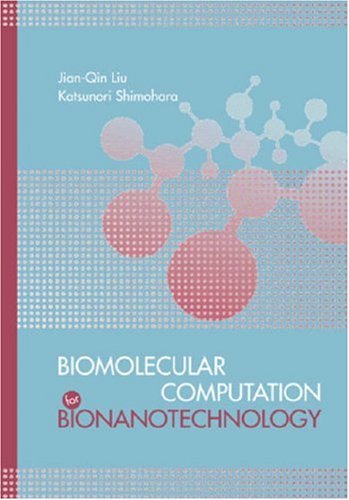Optimization of Trustworthy Biomolecular Quantitative Analysis Using Cyber-Physical Microfluidic Platforms
暫譯: 利用網路物理微流體平台優化可信的生物分子定量分析
Ibrahim, Mohamed, Chakrabarty, Krishnendu
- 出版商: CRC
- 出版日期: 2020-07-10
- 售價: $4,910
- 貴賓價: 9.5 折 $4,665
- 語言: 英文
- 頁數: 349
- 裝訂: Hardcover - also called cloth, retail trade, or trade
- ISBN: 036722352X
- ISBN-13: 9780367223526
海外代購書籍(需單獨結帳)
相關主題
商品描述
A microfluidic biochip is an engineered fluidic device that controls the flow of analytes, thereby enabling a variety of useful applications. According to recent studies, the fields that are best set to benefit from the microfluidics technology, also known as lab-on-chip technology, include forensic identification, clinical chemistry, point-of-care (PoC) diagnostics, and drug discovery. The growth in such fields has significantly amplified the impact of microfluidics technology, whose market value is forecast to grow from $4 billion in 2017 to $13.2 billion by 2023. The rapid evolution of lab-on-chip technologies opens up opportunities for new biological or chemical science areas that can be directly facilitated by sensor-based microfluidics control. For example, the digital microfluidics-based ePlex system from GenMarkDx enables automated disease diagnosis and can bring syndromic testing near patients everywhere.
However, as the applications of molecular biology grow, the adoption of microfluidics in many applications has not grown at the same pace, despite the concerted effort of microfluidic systems engineers. Recent studies suggest that state-of-the-art design techniques for microfluidics have two major drawbacks that need to be addressed appropriately: (1) current lab-on-chip systems were only optimized as auxiliary components and are only suitable for sample-limited analyses; therefore, their capabilities may not cope with the requirements of contemporary molecular biology applications; (2) the integrity of these automated lab-on-chip systems and their biochemical operations are still an open question since no protection schemes were developed against adversarial contamination or result-manipulation attacks. Optimization of Trustworthy Biomolecular Quantitative Analysis Using Cyber-Physical Microfluidic Platforms provides solutions to these challenges by introducing a new design flow based on the realistic modeling of contemporary molecular biology protocols. It also presents a microfluidic security flow that provides a high-level of confidence in the integrity of such protocols. In summary, this book creates a new research field as it bridges the technical skills gap between microfluidic systems and molecular biology protocols but it is viewed from the perspective of an electronic/systems engineer.
商品描述(中文翻譯)
微流體生物晶片是一種工程化的流體裝置,能夠控制分析物的流動,從而實現多種有用的應用。根據最近的研究,微流體技術(也稱為晶片實驗室技術)最有可能受益的領域包括法醫識別、臨床化學、即時檢測(PoC)診斷和藥物發現。這些領域的增長顯著擴大了微流體技術的影響力,其市場價值預計將從2017年的40億美元增長到2023年的132億美元。晶片實驗室技術的快速演變為新的生物或化學科學領域開啟了機會,這些領域可以直接通過基於傳感器的微流體控制來促進。例如,GenMarkDx的基於數位微流體的ePlex系統能夠實現自動化的疾病診斷,並能將綜合症檢測帶到每位患者身邊。
然而,隨著分子生物學應用的增長,微流體在許多應用中的採用並未以相同的速度增長,儘管微流體系統工程師們付出了共同的努力。最近的研究表明,微流體的最先進設計技術存在兩個主要缺陷,需要適當解決:(1)當前的晶片實驗室系統僅被優化為輔助組件,僅適用於樣本有限的分析;因此,它們的能力可能無法滿足當代分子生物學應用的要求;(2)這些自動化晶片實驗室系統及其生化操作的完整性仍然是一個未解決的問題,因為尚未開發出針對對抗性污染或結果操控攻擊的保護方案。《使用網路物理微流體平台優化可信的生物分子定量分析》提供了這些挑戰的解決方案,通過引入基於當代分子生物學協議的現實建模的新設計流程。它還提出了一種微流體安全流程,為這些協議的完整性提供了高水平的信心。總之,本書創造了一個新的研究領域,因為它彌合了微流體系統與分子生物學協議之間的技術技能差距,但它是從電子/系統工程師的角度來看待的。
作者簡介
Mohamed Ibrahim was a Visiting Scholar with the Technical University of Munich, Germany, and the University of Bremen, Germany. He spent a total of three years as a Research and Development Engineer in the semiconductor industry where he worked on design-for-test and post-silicon validation methodologies for several system-on-chip (SoC) designs. His current research interests include SoC design and embedded systems, electronic design automation of LOC systems, Internet-of-Bio-Things, security and trust of bio-systems, and machine-learning applications of bio-systems. Dr. Ibrahim was a recipient of the Best Paper award at the 2017 IEEE/ACM Design, Automation, and Test in Europe Conference, the 2017 Postdoc Mobility award from the Technical University of Munich, Germany, two ACM conference travel awards from ACM-SIGBED in 2016 and ACM-SIGDA in 2017, and Duke Graduate School Fellowship in 2013.
Krishnendu Chakrabarty is the William H. Younger Distinguished Professor and Department Chair of Electrical and Computer Engineering, and Professor of Computer Science, at Duke University. He is a recipient of the National Science Foundation CAREER award, the Office of Naval Research Young Investigator award, the Humboldt Research Award from the Alexander von Humboldt Foundation, Germany, the IEEE Transactions on CAD Donald O. Pederson Best Paper Award (2015), the ACM Transactions on Design Automation of Electronic Systems Best Paper Award (2017), and over a dozen best paper awards at major conferences. He is also a recipient of the IEEE Computer Society Technical Achievement Award (2015), the IEEE Circuits and Systems Society Charles A. Desoer Technical Achievement Award (2017), the Semiconductor Research Corporation Technical Excellence Award (2018), and the Distinguished Alumnus Award from the Indian Institute of Technology, Kharagpur (2014). Prof. Chakrabarty's current research projects include: testing and design-for-testability of integrated circuits and systems; digital microfluidics, biochips, and cyberphysical systems; data analytics for fault diagnosis, failure prediction, anomaly detection, and hardware security; neuromorphic computing systems.
作者簡介(中文翻譯)
Mohamed Ibrahim 曾擔任德國慕尼黑工業大學及德國不來梅大學的訪問學者。他在半導體產業擔任研究與開發工程師共三年,專注於多個系統單晶片(SoC)設計的測試設計與後矽驗證方法學。他目前的研究興趣包括 SoC 設計與嵌入式系統、LOC 系統的電子設計自動化、生物物聯網(Internet-of-Bio-Things)、生物系統的安全性與信任,以及生物系統的機器學習應用。Ibrahim 博士曾獲得 2017 年 IEEE/ACM 歐洲設計、自動化與測試會議的最佳論文獎、德國慕尼黑工業大學的 2017 年博士後流動獎、2016 年 ACM-SIGBED 的兩項會議旅行獎以及 2017 年 ACM-SIGDA 的會議旅行獎,並於 2013 年獲得杜克大學研究生院獎學金。
Krishnendu Chakrabarty 是杜克大學電機與計算機工程系的威廉·H·楊傑教授及系主任,並擔任計算機科學教授。他曾獲得國家科學基金會的 CAREER 獎、海軍研究辦公室的青年研究員獎、德國亞歷山大·馮·洪堡基金會的洪堡研究獎、IEEE CAD 期刊的 Donald O. Pederson 最佳論文獎(2015 年)、ACM 電子系統設計自動化期刊的最佳論文獎(2017 年),以及在多個主要會議上獲得的十多項最佳論文獎。他還獲得了 IEEE 計算機學會的技術成就獎(2015 年)、IEEE 電路與系統學會的 Charles A. Desoer 技術成就獎(2017 年)、半導體研究公司技術卓越獎(2018 年),以及印度理工學院卡拉格普爾校友傑出獎(2014 年)。Chakrabarty 教授目前的研究項目包括:集成電路與系統的測試及可測試性設計;數位微流體、生物晶片及網路物理系統;故障診斷、故障預測、異常檢測及硬體安全的數據分析;神經形態計算系統。














